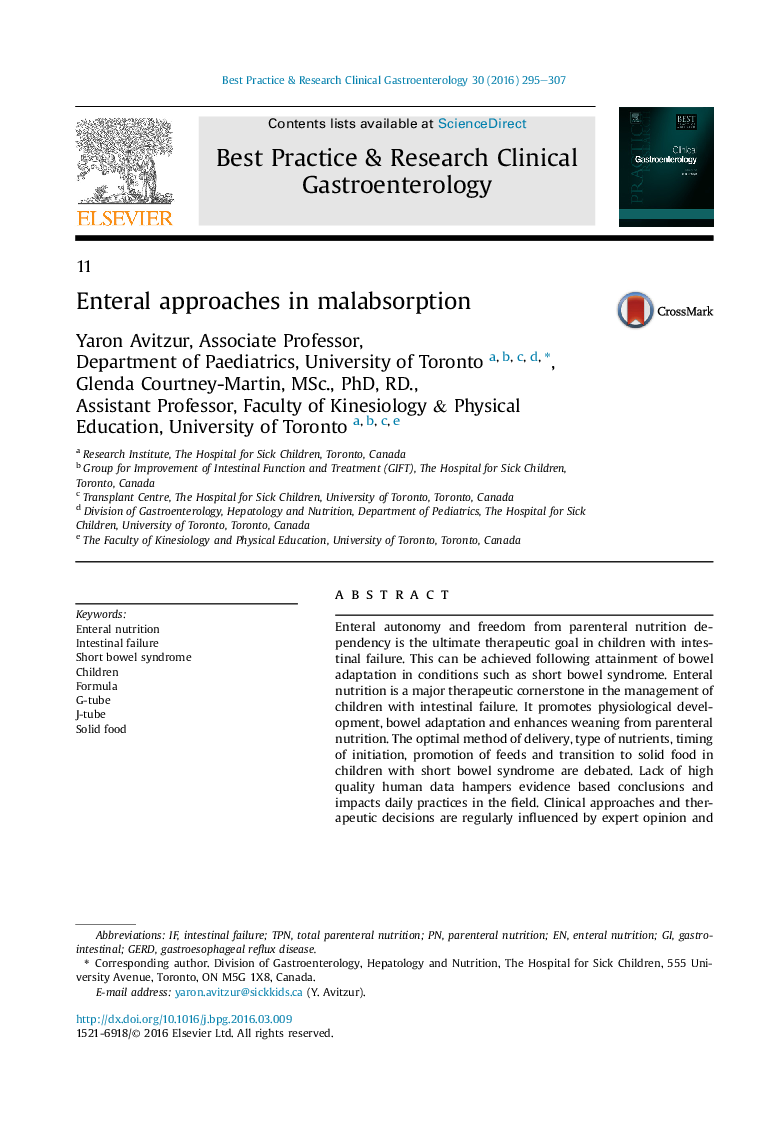| Article ID | Journal | Published Year | Pages | File Type |
|---|---|---|---|---|
| 3254130 | Best Practice & Research Clinical Gastroenterology | 2016 | 13 Pages |
Enteral autonomy and freedom from parenteral nutrition dependency is the ultimate therapeutic goal in children with intestinal failure. This can be achieved following attainment of bowel adaptation in conditions such as short bowel syndrome. Enteral nutrition is a major therapeutic cornerstone in the management of children with intestinal failure. It promotes physiological development, bowel adaptation and enhances weaning from parenteral nutrition. The optimal method of delivery, type of nutrients, timing of initiation, promotion of feeds and transition to solid food in children with short bowel syndrome are debated. Lack of high quality human data hampers evidence based conclusions and impacts daily practices in the field. Clinical approaches and therapeutic decisions are regularly influenced by expert opinion and center practices. This review summarizes the physiological principles, medical evidence and practice recommendations on enteral nutrition approaches in short bowel syndrome and provides a practical framework for daily treatment of this unique group of patients. Oral and tube feeding, bolus and continuous feeding, type of nutrients, formulas, trace elements and solid food options are reviewed. Future collaborative multicenter, high quality clinical trials are needed to support enteral nutrition approaches in intestinal failure.
